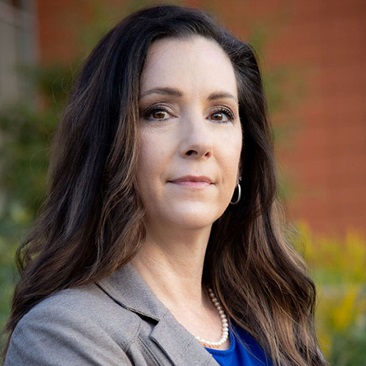Research Insights on Population Health Inspire Policy Change
August 29, 2024
A University lab investigates the connection between state policies, local conditions, and health and mortality in the United States.
In the Policy, Place, and Population Health (P3H) Lab at Syracuse University’s Maxwell School of Citizenship and Public Affairs, sociology doctoral candidate Yue Sun G’19, G’24 presents research for her dissertation that examines the relationship among states’ environmental policies, counties’ economic conditions and air pollution, and cardiovascular disease mortality. In performing this research, Sun analyzed data from 3,101 counties in the 48 contiguous states to estimate the impact these factors have on people’s risk of dying from cardiovascular disease.
During a lively discussion among faculty mentors and fellow graduate students, several potential issues are raised: the influence of neighboring states’ policies, other forms of pollution, cigarette taxes, Canadian wildfire smoke and whether personal income plays a role. “I hope the questions were helpful,” says Jennifer Karas Montez, University Professor of sociology, Gerald B. Cramer Faculty Scholar in Aging Studies and director of the Center for Aging and Policy Studies. “This dissertation is going to be super interesting when it’s done.”
Montez and sociology professor Shannon Monnat, Lerner Chair in Public Health Promotion and Population Health, and director of the Center for Policy Research, are co-directors of the P3H Lab, an interdisciplinary training hub for graduate students and postdoctoral researchers focusing on how state policies and local conditions influence people’s health and life expectancy. A collaboration of the Aging Studies Institute, the Center for Aging and Policy Studies, and the Lerner Center for Public Health Promotion and Population Health, the lab features faculty and peer-to-peer mentoring, as well as the opportunity for members to gain training in research methods and how to translate research findings to nonacademic audiences, share research and get feedback, write academic papers and policy briefs, and practice for presentations and job interviews. “We also work with graduate students as part of our funded research,” Monnat says. “They conduct analyses, present at conferences, and write papers with us for publication in peer-reviewed journals.”
The mentoring and collaboration pay off, too: Past lab members have accepted positions at Cornell, Penn State, University of Nebraska, University of North Carolina at Chapel Hill and elsewhere. In August, Sun, who has co-authored research papers with Monnat and Montez and was awarded a Ph.D. in the spring, will start a postdoctoral fellowship at the University of Colorado-Boulder.

Policy Impact on Health and Life Expectancy
Monnat and Montez are highly regarded, prolific scholars who collaborate on research projects that investigate demographics and disparities in population health, including the role of politics and democratic erosion on health and life expectancy. “A core objective of our research is to understand how changes in U.S. state policies since the 1980s and macroeconomic changes at the local level have affected the health and life expectancy of people living in the United States,” Montez says. “This research shows how our health and how long we live is profoundly impacted by decisions completely outside of our control.” Monnat adds, “Too many Americans are dying too young. We hope that the findings from our research help to inform policies that enable Americans to live longer and healthier lives.”
Monnat and Montez work closely with faculty from Syracuse and other institutions, including Doug Wolf, professor emeritus of public administration and international affairs (PAIA) and a P3H Lab mentor, and Emily Wiemers, associate professor of PAIA. In research funded by the National Institute on Drug Abuse, they published findings that showed states’ COVID-19 physical distancing policies negatively affected the mental health of working-age adults and increased their risk of dying from drug overdoses. Last year, they were awarded a five-year, $1.8 million grant from the National Institute on Aging to examine how the combination of state policies and counties’ economic conditions since the 1980s have influenced working-age adult psychological wellbeing, health behaviors and mortality. Monnat also leads the National Wellbeing Survey, an extensive population-based data collection initiative that allows researchers to examine variables that impact physical and mental health. Several of the lab’s students are working with and publishing from these data.
Read the full article via the Syracuse University website.
By Jay Cox
Published in the Fall 2024 issue of the Maxwell Perspective
Related News
Commentary

Dec 3, 2025
Commentary

Dec 2, 2025



